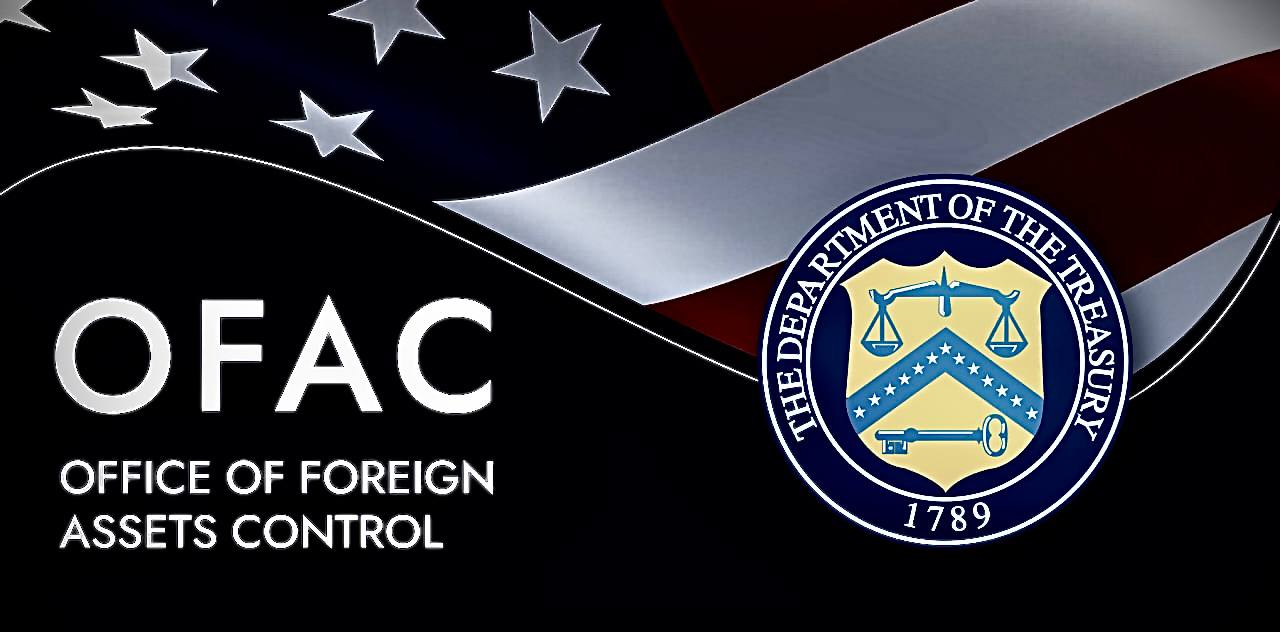
OFAC and Credit Reports
When checking your credit history, you might unexpectedly find an OFAC alert. This can not only affect your ability to get loans but also mark you as a person suspected of committing crimes. Therefore, it’s extremely important to correct this mistake as soon as possible and remove the OFAC alert from your credit report.
If you’ve been mistakenly listed in the OFAC report, we recommend immediately consulting with a legal advisor to file a request for removal from the list. Reach out to our attorneys for professional assistance with OFAC-related matters and fixing credit reports.

What is an OFAC alert?
An OFAC alert is a flag indicating that an individual or entity is included on OFAC’s sanctions lists. These lists encompass individuals, companies, or governments subject to sanctions due to involvement in terrorist activities, drug trafficking, human rights violations, or other actions threatening the national security of the United States.
The main function of OFAC notifications is to inform financial institutions, businesses, and government agencies about the need to check individuals or entities against sanction lists. If matches are found, the relevant individuals or entities may be subject to economic sanctions or restrictions on financial transactions.

Why do OFAC alerts appear on credit reports?
Since collaborating with sanctioned individuals can lead to severe penalties, companies often hire third parties to conduct thorough checks. Only after these are completed do they proceed with any transactions or agreements.
Credit agencies check individuals and companies against OFAC sanction lists, including the SDN list. Receiving an OFAC alert helps banks, credit institutions, and other organizations avoid funding terrorist groups, drug traffickers, or other sanctioned entities.
Credit agencies check their databases for individuals linked to sanction lists. If there’s a match, a notification appears in the report even without any suspicion of a specific violation.
As a result of such a check, a credit report is provided. However, the procedures for matching counterparties or consumers against the OFAC list are often vague. This leads to innocent people being mistakenly labeled as terrorists or drug traffickers based solely on a similar name.
If you need to address an OFAC alert on your credit report, reach out to our lawyers for professional assistance.
Consequences of an OFAC notification
- Denial of credit and financial services. If a creditor or financial institution sees an OFAC notice in your credit report, they can deny you a loan, refuse to open a bank account, or withhold other financial services;
- Restricting access to financial accounts. Financial institutions may freeze accounts or limit access to certain services if there’s suspicion that an individual or company is involved in activities violating sanctions. Additional checks and investigations will be conducted, leading to temporary or permanent restrictions on financial transactions;
- Downgrade of credit rating. While the mere presence of an OFAC notice doesn’t directly impact the credit rating, the accompanying consequences can negatively affect the credit history;
- Legal consequences. If an individual or company falls under OFAC sanctions, it leads to serious legal repercussions: the possibility of further legal proceedings, fines, or even criminal liability, depending on the nature of the violation.
If you’ve noticed an OFAC alert on your credit report, immediately reach out to experienced attorneys who specialize in international sanctions and credit reports. They’ll help you address the issue, file an appeal, and correct any mistakes in your credit history.
How to remove an OFAC alert?
If you find out you’ve been falsely flagged by OFAC, you should immediately reach out to a lawyer who has experience dealing with OFAC notices. They can help figure out if you’re entitled to any compensation and also prevent false alerts from showing up on your credit report in the future.

To remove an OFAC alert from your credit report, follow these steps:
- Identifying the reason for the notification. Such notifications often occur if your name or information matches data on OFAC sanctions lists. Alerts can be the result of an error or incorrect identification;
- Checking the information in your credit report. Order your credit report from the major credit bureaus and review the information it contains. If you believe any of the entries are incorrect, gather all documents that verify your identity and lawful activities;
- Filing a dispute with credit bureaus. Contact the credit bureau that provided your credit report and request a review of the OFAC alert information. You’ll need to submit a formal statement with documentation proving that you are not subject to OFAC sanctions or that an error has occurred;
- Legal Representation. If you’re facing challenges in the process of removing a notice, consider reaching out to legal experts who have experience with OFAC issues and credit disputes. They can file requests on your behalf and help expedite the process;
- Request to OFAC. If you’re confident that the notification is related to false information, submit a request directly to OFAC through the official channels. In your request, you need to provide details on why you believe the sanctions were applied mistakenly or without any basis;
- Re-verification. After submitting inquiries to credit bureaus or directly to OFAC, the verification process can take several months.
Reach out to our lawyers for professional assistance with OFAC issues!
What should you do if the alert is false?
If an OFAC alert pops up on your credit report but you’re sure it’s a mistake, it’s crucial to act quickly to correct the situation and prevent any damage to your financial reputation.
First off, you need to get a credit report from one or more of the major credit bureaus. This will help you clearly identify where exactly the notification came from and what its details are.
If you’re confident that the notification is a mistake, reach out to the relevant credit bureau with a formal complaint. You’ll need to provide documents that prove your identity and explain why you believe the notification is incorrect. The credit bureau must review your complaint and correct the error.
You can also directly contact OFAC to request clarification and correction of an erroneous notification. Provide proof that you have no connection to the sanctions or activities subject to them.
Reaching out to a credit bureau, OFAC, and involving lawyers in a timely manner will help protect your interests. Contact our lawyers for professional assistance with OFAC issues and resolving similar situations!
How Common Are Incorrect OFAC Alerts?
Many financial institutions and companies around the world know firsthand the obligation to comply with OFAC sanctions. To do so, they use special verification systems that allow them to determine that they are not doing business with sanctioned entities. However, there are times when the system may generate a false OFAC alert.
A false OFAC alert occurs when the system misidentifies a law-abiding customer as a sanctioned person for certain violations. These situations occur due to name similarities, data errors, and incomplete information. False alerts can result in delays in customer service, additional inspections and lost business opportunities.
Issuing erroneous alerts occurs quite frequently. Research has shown that up to 90% of all alerts can be false. With these rates, companies are wasting time and resources on verifying customers who are in no way related to individuals on the sanctions list.
The high false positive rate may be due to several factors. First, the similarity of names: many names are common in different cultures and countries, leading to matches with names on sanctions lists. Second, the presence of inaccurate data, such as errors in spelling, transliteration or updating information, can lead to misidentification. In addition, the limited capabilities of verification systems that do not utilize modern technology such as artificial intelligence reduce the accuracy of identification.
The consequences of false alerts are not only financial costs, but also damage to a company’s reputation. Customer confidence can be significantly reduced due to constant checks and delays.
To reduce false positives, companies are implementing better verification systems, updating data and training staff on effective identification methods. The use of machine learning and artificial intelligence technologies is helping to analyze data more accurately and reduce errors.
In conclusion, incorrect OFAC alerts are a widespread problem affecting many companies around the world. Understanding the causes and proactively applying modern solutions can help reduce the negative impact of false positives and improve the efficiency of business operations.
Legal Assistance with OFAC Notifications
Lawyers specializing in sanctions and credit history issues can provide expert assistance in resolving these problems.
Our specialists have years of experience working with credit bureaus and OFAC, allowing us to achieve the best results for our clients.
How can our lawyers solve your OFAC issues?
- Evaluating the situation. The first step is a thorough analysis of your credit history and OFAC notifications. Lawyers will help determine whether the notification is false or if there are actual sanction risks involved;
- Filing a complaint with credit bureaus. If the notification is false, specialists will prepare and submit a complaint to the credit bureau with the goal of removing inaccurate information;
- Cooperating with OFAC. Lawyers will submit a request to OFAC for clarifications or to present evidence proving that you are not involved in sanction violations;
- Protection in case of legal consequences. If the notification leads to legal actions, attorneys will defend your interests in court. They will provide professional representation and help minimize risks;
Reach out to our law firm for professional assistance with issues related to OFAC sanctions!




